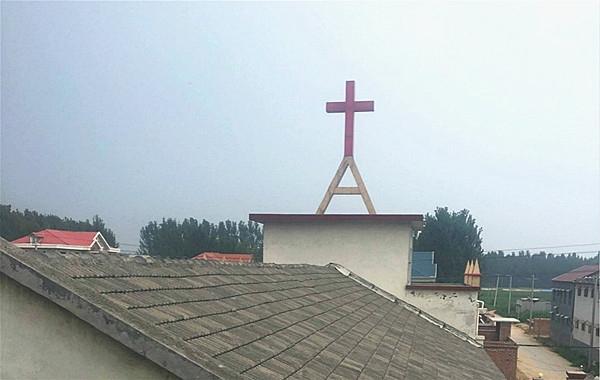As we all know, Christianity seems to have returned to facing as much tension as ever. No matter whether it is the suspension of gathering places or delivering live-streaming services, the situation has been changing. It has been determined by the international environment and on the other hand, by the COVID-19 pandemic. With a pool of many other factors, it is how the current situation faced by Chinese Christianity come to be.
So under such a background, a voice within Christianity has emerged - that is returning to the underground state to seek development. Despite all kinds of unwillingness that Chinese Christianity has shown, “returning to the underground” could be a long legacy in the Christian historical tradition. It is this traditional consciousness rooted in history that leads to Chinese Christianity being convinced that “underground development” is the inevitable state of Christianity.
About the development of Christianity, there have been two voices colliding with each other. One is the faith in persecution and the other is nationalism. These two ideas are two extremes, but they can even coexist safely in the same group.
Persecuted believers hold that the revival of Christianity does not come from peaceful times, but from the era when Christianity is persecuted. This view holds that without the persecution of the Roman Empire in the early history of Christianity, there would be no latter rise of Christianity. They even think that where there is persecution, there is revival. Based on this view, as early as ten years ago, when the social space of Christianity was constantly expanding, there were believers who missed the era of Christian persecution starting to express the thought that the present relaxed environment would bring about the decline of Christianity.
Of course, at first glance, this view makes sense, but it can’t stand scrutiny. According to Rodney Stark’s view of religious sociology, indeed, the tense environment will increase the cost to Christian believers thus excluding hitchhikers. So the remaining believers are people who highly agree with the church groups. However, in the tense environment, the inevitable result is the great tension between religious doctrine and the secular world. The ultimate orientation of this tension is not the revival of religion, but the shrinking of religion. Because this orientation points to the yearning of the secular world and at the same time the denial of the secular world. This denial isolates Christianity from the world.
Yet the persecution of Christianity by the Roman Empire was not the fundamental reason for the revival of Christianity, the rise of Christianity lies in its gospel itself. At that time, there were many religions in the Roman Empire, but only Christianity remained among the masses during the plague, showing concern and respect for the weak children and facing the upheaval bravely. Therefore, it is a wrong judgment to attribute the revival of Christianity to persecution. What can only be produced under coercion is a religion that rejects society.
Another view, on the contrary, holds that the revival of Christianity originates from the nationalization of Christianity.
This view probably comes from the historical legacy of Constantine the Great of the Roman Empire, who positioned Christianity as the state religion. It is in this view that Christianity was keen to create rumors that national leaders believe in religion.
However, did the revival of Christianity in the Roman Empire originate from nationalization? We can ask this question, why wasn’t any Roman emperor converted to Christianity before Constantine except Constantine himself?
According to Stark’s statistics, in Constantine’s time, the number of Christians already accounted for more than half of the Roman Empire. Just because of the consideration of a large number of Christians, Constantine the Great, who was suffering from the anxiety of the split between East and West Rome at that time, took Christianity as a lifeline to bond the cracks of the empire. Therefore, the reason that Christianity maintained steady growth during the period of persecution by the Roman Empire was why Christianity was nationalized.
However, it was only after Christianity became an established religion that the Middle Ages began. In this era, history obviously didn’t evaluate it very positively. Therefore, it also tells us that the nationalization of Christianity itself is not the revival of Christianity, but a manifestation of the ‘religionization’ of Christianity. The Christian revival was actually the Renaissance and the Enlightenment because it was the result of relying on the culture brought by the Christian faith and clinging to freedom.
Observing these two viewpoints, we can find that although they are obviously contradictory to each other, they all have a common pursuit, that is, power: forcing believers to sanctify themselves so that believers can become special voters in heaven, and their privileges as citizens in heaven are compared with those outside the church. Nationalization also gives religious individuals a real privilege. Therefore, one pays attention to the privilege of heaven and the other pays attention to the privilege of earth.
Then, these two views ignore the power of the gospel of Jesus, and at the same time provide two kinds of shelters for Christianity in extreme circumstances. When the external environment is tense, it goes underground because persecution revives Christianity. When the external situation turns less tense, it returns to the ground, tries to preach the gospel to the leaders and nationalizes Christianity.
Apart from these two ideas, what is the development model suitable for the gospel of Jesus? Obviously, we should go back to Jesus and think about the way out of Christianity in his teachings.
After the mother gave birth to Jesus, in order to avoid Herod’s persecution, she fled to Egypt under the guidance of an angel. Later, after Herod died, she returned from Egypt. An angel of the Lord appeared to Joseph in a dream in Egypt, saying, “Get up! Take the child and his mother to the land of Israel, because the man who wanted the child’s life is dead.” (Matthew 2:19-20)
The spread of the gospel of Jesus, the followers of Jesus, and even the whole ministry of Jesus all developed in their own hometown. Why did God call Jesus back to Israel instead of letting him complete his mission in Egypt? Apparently, Alexandria in Egypt had the largest Jewish community in the world.
After Jesus returned to Israel, he preached the gospel among Jews. He shared the gospel with the weak around him, not to the strong around him. I haven’t encountered any message of Jesus preaching the gospel to the high priest or Roman officials for the sake of his gospel prosperity, although his disciples were eager to share power from him.
Jesus’ way of preaching the gospel has always been to start from his own side, to give the Samaritan woman water and teachings, to heal the demon-possessed woman and the woman suffering from blood leakage, and so on. What Jesus did was to care for those around him who needed help.
From Jesus, the inspiration for us is that the root cause of the rise of Christianity is the gospel of Jesus, and this gospel should start from the people around us - neither from the other side nor from the temple, but from the side of the local place.
Therefore, what the present environment brings us is just to let us look back to the gospel itself from a distance and high temple, and start the practice of the gospel from the village or community where our church is located, so that, like Jesus, people around us can feel the warmth of the gospel.
At present, what we should do most is not to consider the conversion between underground and going public. But let us understand that it is the gospel that really plays the leading role, and it is the people around us who really need the gospel.
Therefore, instead of going underground, we go to our communities and neighbors. Let the church return to its native land, which is the real development path.
- Translated by Charlie Li












